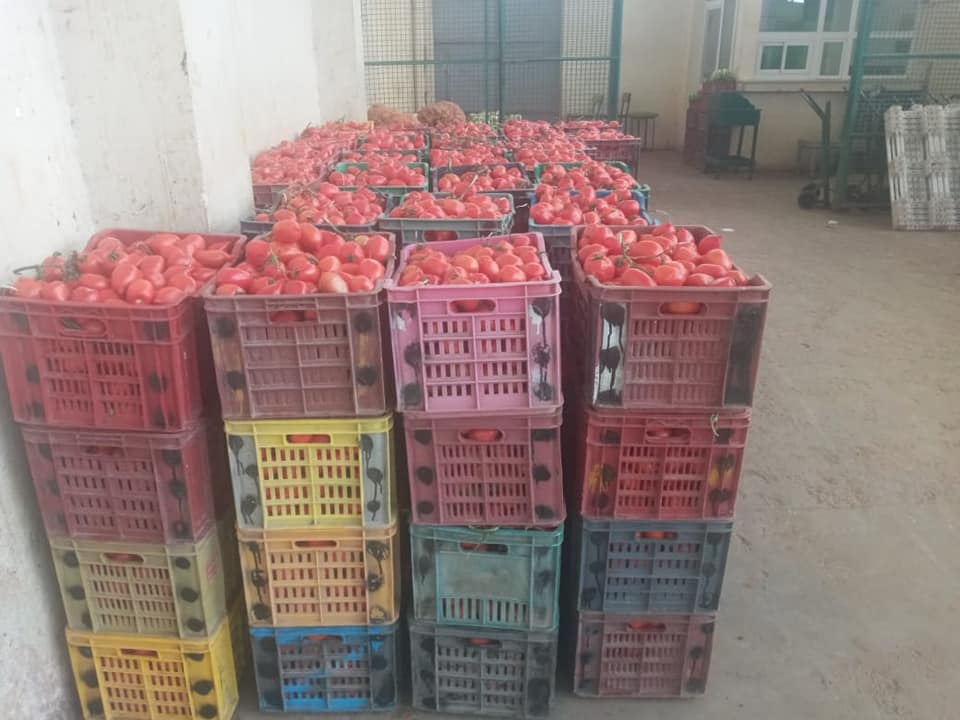The Ministry of Commerce announced in a press release on April 11 the ban on the export of four types of vegetables (tomatoes, peppers, onions and potatoes) in the face of supply difficulties that have led to a significant increase in their price.
According to the economic adviser of the Tunisian Union of Agriculture and Fisheries (UTAP), Fathi Ben Khalifa, the export ban – but also the drop in consumption after the first days of Ramadan – would already have, on the 14 April, contributed to lower prices for these products on local markets.
In addition, exports of fresh agricultural products represent only 0.3% of Tunisian exports. This prohibition measure should therefore have only a small impact on the trade balance according to the Ministry of Commerce. In addition, Libya, Tunisia’s leading customer for fresh agricultural products (60% of fruit and vegetable exports are destined for Libya), has asked the Tunisian authorities to exempt it from the prohibition measures given the context current crisis and the increase in consumption during Ramadan.
UTAP’s economic adviser said companies under contract with Libyan clients could continue trading.
Tunisia shows a slight deterioration in its trade balance
According to the National Observatory for Agriculture (ONAGRI), the food trade balance deficit fell from 251.7 M TND (i.e. 77.3 M EUR) in March 2021 to 268.4 M TND (i.e. 82 .4 M EUR) in March 2022, an increase of 6.6%.
In terms of value, imports (+20.4%) recorded a less significant increase than that of exports (+22.8%). The recorded deficit is mainly the result of the increase in cereal imports (+11.4%), sugar (+191.9%) and vegetable oils (+32.2%) and the decrease in exports of citrus fruits (-15.1%) and fish products (-4%). However, during the above-mentioned period, exports of olive oil (+40.7%) and tomatoes (+14.1%) increased.
Export prices increased by 37.7% for olive oil between March 2021 and 2022. Conversely, those of tomatoes and fish products fell by 23.3% and 10% respectively. 1%. In addition, the import prices of cereal products increased by 94% for durum wheat, 41.6% for soft wheat, 50.2% for barley and 25.7% for corn. compared to March 2021, but the impact of the Russian-Ukrainian conflict is not yet notable for the March 2022 figures.
The food coverage rate rose, at the same time, from 84.9% to 86.6%.
Source Embassy of France in Tunisia











Réagissez à cet article